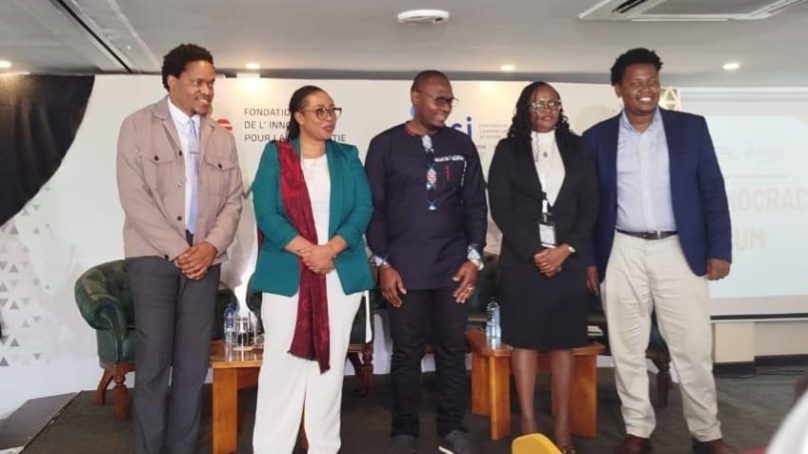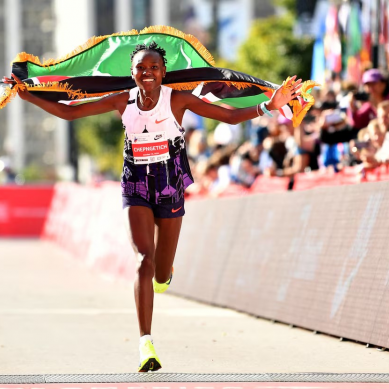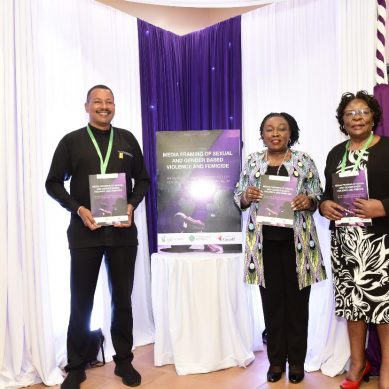
With just about two years to go and political and ethnic tensions near boiling point in Kenya, governance and human rights experts want bold and urgent electoral reforms, institutional independence and meaningful citizen participation to safeguard democracy in the country and by extension Africa.
Speaking during Day Two of the Democracy Forum 2025 in Nairobi, the panellists appealed to governments in Africa to prioritise inclusive governance, civic education and accountability in electoral processes.
The calls were made against the backdrop of governing Kenya Kwanza coalition and nascent opposition trading furious political and ethnic salvo, raising fears of imminent violence in the East African nation.
In the past one year, Kenya has witnessed unprecedented incidence of extrajudicial killings, abductions and increased state repression as concerns emerge over contraction of democratic space.
The forum hosted by the Foundation de l’Innovation pour la Démocratie in partnership with International Commission of Jurists (ICJ) Kenya, brought together democracy champions from Kenya, Uganda and Tanzania, among others.
Like Kenya, Tanzania which holds elections in October – and Uganda, are also experiencing political repression, with the opposition leaders and the media denied space for freedom of expression. There have been reports of state-sanctioned disappearances, extrajudicial killings, arbitrary arrests and detention of leading opposition figures, and suppression civil society activities.
Senior Governance and Elections Specialist at the Electoral Law and Governance Institute for Africa (ELGIA) Brenda Isabel noted that electoral bodies in Africa remained vulnerable due to overregulation and lack of autonomy.
“In Kenya, we legislate everything from timelines to operations, yet the Independent Electoral and Boundaries Commission (IEBC) lacks financial independence. You cannot ask an institution to be impartial when it is financially dependent on those it oversees,” stated Isabel.
She maintained that democracy must address the people’s daily needs such as employment, shelter and education.
“What we are witnessing in youth-led protests is not just content creation. It is a struggle for survival and dignity,” observed Isabel and commending Kenya’s Gen Z Movement.
An International Human Rights Lawyer from Tanzania Tito Magoti warned against manipulated electoral processes and shrinking civic space in the region.
“In the 2024 local government elections, manual registration allowed for multiple registration without verification. That’s not democracy, that’s controlled participation,” Magoti pointed out.
He challenged citizens to withdraw political legitimacy from oppressive regimes, adding, “The only way to protect your vote is to refuse to surrender it to a rigged process. We must organise not only through donor projects but through sustained civic action.”
In the meantime, Walezi wa Katiba Team Leader and a Ugandan civic rights lawyer Michael Aboneka decried the lack of term limits and weakening of state institutions in Uganda, describing the political environment as one characterised by “fatherism” and “longevity”.
“We must dismantle ideologies that normalise’ lifetime’ presidencies. Our responsibility is to define a citizen-driven governance model, starting with a citizen manifesto to outline our own expectations,” urged Aboneka.
Elections expert and ICJ Kenya member Ruth Makuthu insisted that electoral reforms must go beyond legal provisions and be backed by political will.
“We cannot speak of IEBC independence when the IEBC fund, legislated in 2012, has never been operationalised. Without funding, independence remains a theory,” voiced Makuthu.
She also called for increased voter education and protection of digital rights amid the rise of disinformation and manipulation through emerging technologies.
“Our elections are over-regulated to the point that even meals provided to polling officials are prescribed in guidelines. It’s time to focus less on bureaucracy and more on credible, inclusive elections,” she added.
Meanwhile, the forum also featured storytelling, artistic performances and networking sessions aimed at strengthening cross-border solidarity and civic engagement. Organisers said the event sought to promote dialogue and action on democratic renewal across East Africa.
Further, participants rallied behind the hashtag DemocracyForum2025, calling for people-centred governance, media freedom and regional cooperation to uphold democratic values.
Additionally, the speakers emphasised that democracy must extend beyond periodic voting to include transparency, justice, and public accountability.
The forum culminated with a unified call for citizens to reclaim democratic space, strengthen institutions, and ensure that governance truly reflects the will of the people.
- A Tell Media / KNA report / By Amina Bakari and Wendy Sheilla







